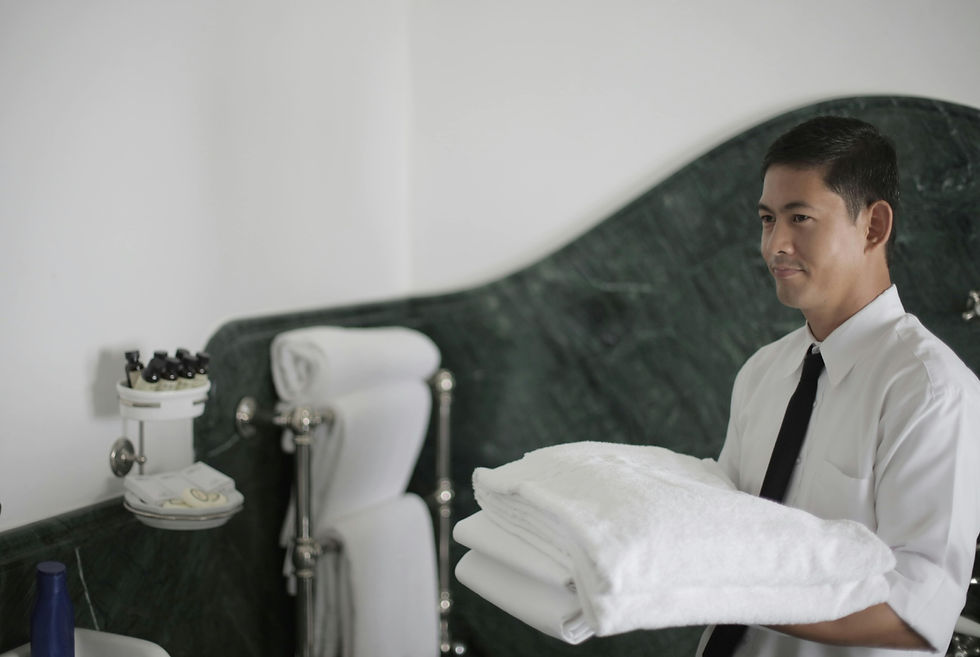How to Avoid Hidden Charges on an All-Inclusive Trip
- Jonathan Reix

- Aug 10, 2025
- 3 min read
All-inclusive holidays promise ease, luxury, and peace of mind. Pay once, and everything is covered — right? Not quite. While these packages cover most expenses, many travelers return home surprised by unexpected fees that weren’t advertised up front. From resort taxes to sneaky minibar charges, hidden costs can quickly add up.
Here’s how to spot and avoid those hidden charges before they ruin your supposedly stress-free escape.
1. Read the Fine Print — Every Time

Travelers often overlook the terms and conditions when booking an all-inclusive deal. This is where most hidden fees lurk. Before committing:
Check what's not included: Some packages exclude airport transfers, excursions, premium drinks, or à la carte dining.
Look for mandatory resort fees or local taxes: These are sometimes added at check-in and can be significant.
Clarify cancellation and change policies to avoid fees later.
Pro Tip: Search the resort name + “hidden fees” or “extra charges” to see real traveler experiences.

2. Confirm What “All-Inclusive” Actually Means
Not all “all-inclusive” packages are created equal. Some include only meals and drinks at certain times or limit what you can access on the property.
Ask the following:
Are alcoholic beverages included — and if so, are there brand restrictions?
Is room service covered?
Are activities like snorkeling, fitness classes, or kids’ clubs included?
If it’s not explicitly listed, assume it’s extra.

Here’s a helpful comparison:
Typically Included | Often Not Included (Extra Cost) |
Buffet meals (breakfast, lunch, dinner) | À la carte restaurants |
Non-alcoholic drinks and domestic alcohol | Premium spirits or wine |
Group activities (e.g., aqua aerobics) | Motorized sports (e.g., jet skis) |
Basic room accommodations | Room upgrades or ocean view |
Airport transfers (sometimes) | Airport taxes or parking |
Entertainment shows | Spa treatments or private events |
Taxes and gratuities (sometimes) | Local resort fees, environmental taxes |

3. Watch Out for Upselling On-Site
Once at the resort, staff may promote spa treatments, private beach dinners, or exclusive “members-only” experiences. These come at an extra cost.
You’re more likely to agree to these add-ons if you're relaxed and not monitoring your budget — which is exactly the point.
Avoid This: Politely decline services you didn’t budget for. If in doubt, ask, “Is this included in my package?”

4. Use Cash or a Prepaid Card for Extras
Many resorts encourage room charges that you settle at the end of your stay. This can obscure how much you’re actually spending.
Instead:
Pay cash or use a travel card for incidentals.
Track your spending daily to avoid bill shock at checkout.

5. Beware of Roaming and Wi-Fi Charges
Even upscale resorts may charge for high-speed Wi-Fi or international calls. Some offer only basic connectivity for free — and that might not be enough for streaming or video calls.
Tip: Download maps, guides, and entertainment before you travel. Use messaging apps over Wi-Fi where possible.

6. Research Tipping Expectations
Although tipping is often “included,” many travelers feel pressured to tip extra. In some regions, tipping is expected for every interaction — from bellhops to bartenders.
Search the local tipping culture and check if gratuities are truly included in your package.
7. Book Direct or Use Trusted Travel Agencies
Booking through third-party sites may result in incomplete or outdated package details. You might miss out on promotions or upgraded inclusions available through the resort directly or a certified travel advisor.
Ensure:
You get written confirmation of all inclusions.
There’s a clear line of contact for disputes.

Final Word
An all-inclusive trip should bring you rest, not regret. By carefully reading the fine print, setting spending boundaries, and asking direct questions, you can truly relax — without the unpleasant surprise of hidden charges.








Comments